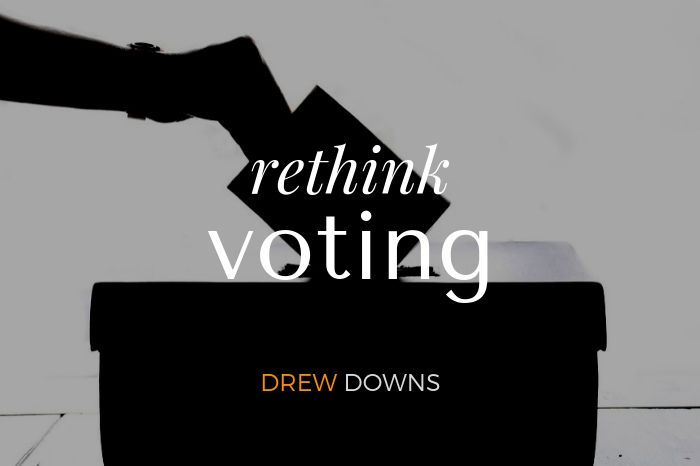Voting in the United States looks nothing like the open, efficient, and fair rhetoric we use to describe it. It’s time we changed that.
I looked up the closest polling place on my phone.
Then drove to it. The door was locked.
I looked it up again. The location was right. It was clearly the right place. And right time: 6 am to 6 pm.
What I didn’t do was click on the small tab that said “early voting”. Clicking that revealed that the hours for early voting are 11 am to 7 pm.
So I left.
Given all the technological advancements in the world, an economic bias toward efficiency, and a deep civic conviction to protect the sanctity of the vote, why is our process of voting so stupid?
We run national elections like a kid’s lemonade stand
Voting should be a party. We should celebrate and engage with how amazing this right is. Music, treats, dancing in the streets! Everything about it should reflect its true value.
It should be easy, free, and festive! There should be no confusion, no stumbling block to the ballot box. And, of course, no need to just know how it all works.
The actual act of going to vote sucks. It’s amazing we put up with it.
It feels like a collection of semi-autonomous lemonade stands we just happen upon in our local community. Machines are put up in strange buildings all over town, hackneyed signs are placed on doors, and the constant sense of wondering “is this right place” pervades the whole process.
I don’t mean to belittle the volunteers who make voting possible in every community in the country. These people do incredible work. It’s just they have so much to do and so little to work with. They are the ones making the lemonade out of some hard, unripe lemons.
But that’s just the process of finding the right polling place. Once inside, we have a whole different experience. ID laws, confusing ballot initiatives intentionally written to confuse (If I vote “yes” is that really a “no” to the thing?), and the long list of nonpartisan elections we have a hard time researching.
Too many people involved with the process work too hard to prevent too many of us from voting while making it all too complicated and inefficient.
The whole voting thing feels like a lemonade stand with an ID restriction and an incomprehensible menu. Or worse. It’s as if McDonald’s were run like a lemonade stand while also requiring preclearance, a college degree, and a spare 25 minutes to grab a cheeseburger.
Excuses
The main justification for why the United States has such an inadequate patchwork approach to elections is that we believe the constitution demands it. It doesn’t. But we let that excuse justify bad design.
Similarly, a justification we use to actually make voting harder is that people should want to jump through hoops. Something I’ll happily remind the people waiting in line for their pumpkin spice lattes.
We really have no good excuses for our ridiculously inefficient and disordered election process.
Some Ideas
Setting common hours at clear polling places with an adequate amount of time would make it easier to vote. If I can have McDonald’s delivered from my phone, voting should be just as simple and easy.
Automatic universal registration, enfranchising more people, and restoring the voting rights of millions of Americans should be the highest priorities of a bipartisan electorate. If for no other reason than voting is a constitutional right of every citizen. We’ve shed far too much blood securing it, why do we let anyone steal it from anyone else?
Some more good ideas: national universal voting machines, safely secured and with paper trails; mandatory hand counts on all elections; media blackouts until all polls are closed; national voter IDs which protect the rights of citizens to vote; ranking votes; and compulsory voting.
Rethink what it means to vote.
We need to make sure our view of voting actually matches our priorities.
When we keep framing the question as “how much are people willing to put up with to secure the vote?” we will find an increasingly incomprehensible voting experience. It’s the negative thought process which leads to predictably negative outcomes.
Instead, frame the question: “How much easier would voting be if we ensured that getting everybody to vote was our true priority?”
Protecting the vote doesn’t mean putting it in a lockbox. It means ensuring we all use it.

